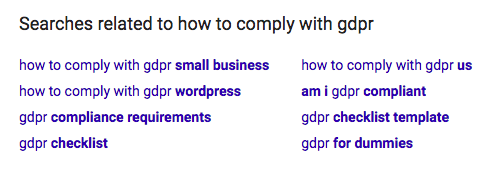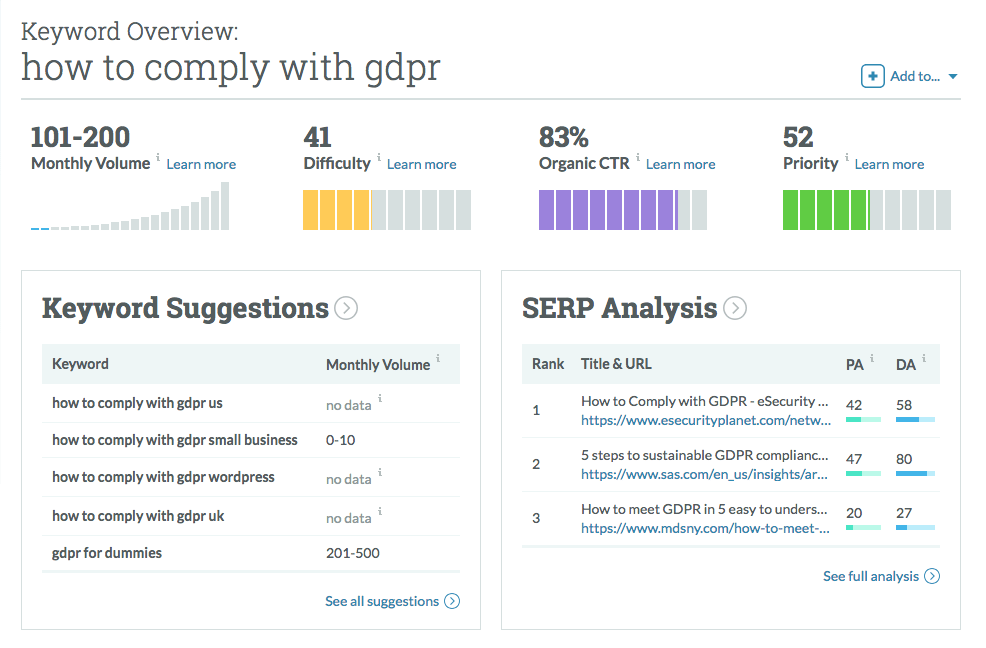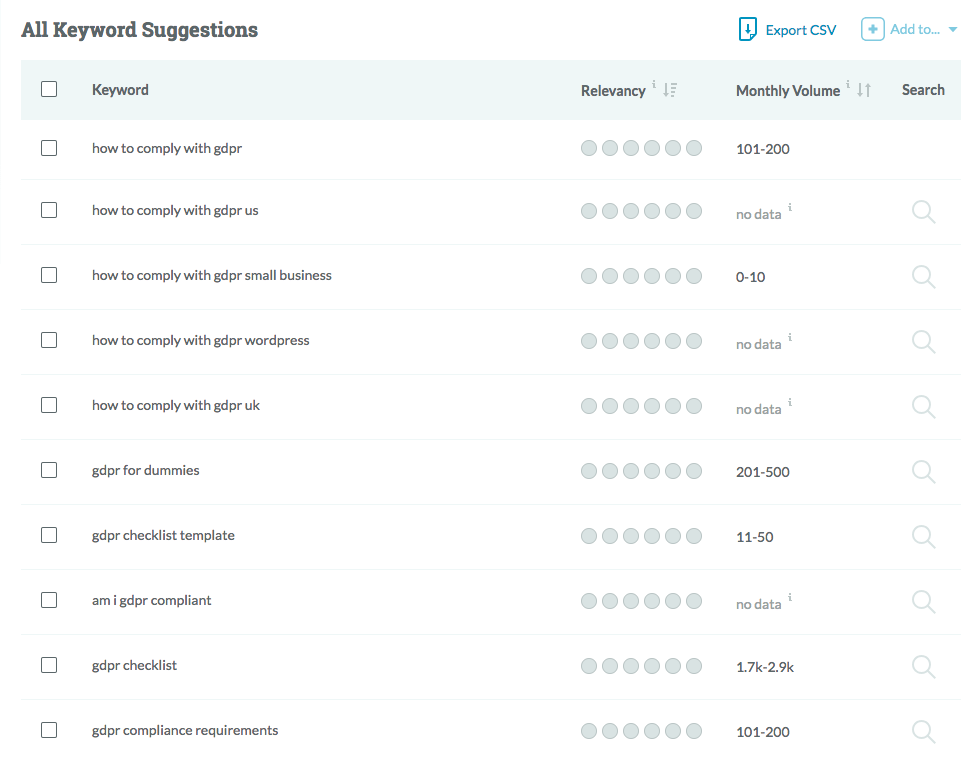As a B2B marketer, you’re expected to regularly churn out content that your audience can engage with at every stage of their buyer journey. And while content marketing programs often start hot out of the gate, progress eventually can slow to a crawl.
Why does this happen? Often, it’s because you’ve exhausted all the most obvious content ideas.
The good news is that obvious does not always equal good. The content ideas that first jump to your mind likely have been written about over and over again by your competition. That means high search competition, lots of noise and a low chance that your content will get noticed by your target audiences.
It’s time to do the important work of finding unique content ideas that your customers and prospects crave. These are the assets that set your content marketing apart from the pack.
And you don’t have to do it alone. Below are five free, easy-to-use tools to help you come up with your next great content idea.
5 Online Tools for Ideating New B2B Marketing Content
1. Google search results.
Alright, this is an obvious one. But sadly, Google isn’t used enough for content ideation — and when it is, it’s often not used effectively.
Google results are a quick and simple place to check the pulse of your target audience and get insight into their searches. The first few search engine results pages can give you a feel for how your topic idea has been covered. Is the competition already on it? Which angles did they take? What gaps exist?
Often, your first search will be pretty well covered. So if you’re looking for tangential ideas, scroll down to the bottom of the SERP. The related searches found there will help you explore new iterations of your original idea, and help you home in on your next content topic.
For example, I might be looking for ideas on how to comply with GDPR. In the related searches section, I can see more specific information users are seeking around that subject. From there, I can evaluate each idea based on competition and my audience’s needs.

2. Moz Keyword Explorer.
While Google search results can give you a nice high-level look at potential topics and themes of interest, Moz Keyword Explorer provides a more in-depth, keyword-specific analysis of search activity. Many B2B marketers use this tool to optimize their content for search, but they sometimes miss out on the opportunity to use Moz for finding new content ideas.
The Moz Keyword Explorer provides a high-level view of the topic you’re interested in writing about. It generates scores for Difficulty, Organic CTR and Priority to help you get a sense of whether the topic is worthy from a search perspective.

If you determine your topic is worthwhile, you can dig deeper into keyword suggestions to find more specific topic opportunities. Moz generates keyword suggestions paired with each of its monthly volumes (how frequently the phrase is searched each month).

Continuing the example of “how to comply with GDPR,” we see that a lot of people are looking for a checklist for assessing their own GDPR compliance. There also are opportunities for country-specific content, or to write a piece that shows the differences between compliance in the U.S. and U.K. Finally, a look at GDPR compliance through the lense of WordPress also could yield helpful content. Which WordPress plugins can people use? What special considerations should be made when using WordPress?
All of these topics would require more competitive research and further sharpening of the topic, but you can see how Moz acts as an effective jumping-off point.
3. Answerthepublic.com.
This site is basically an encyclopedia for idea generation. The tool makes me feel like I can access the inside of my future readers’ minds and tailor content to their interests.
Answer the Public gives you literally thousands of topic ideas as you create webpages, blog posts, e-books, white papers, webinars and any other content. It instantly produces a clever visual representation of aggregated search results from Google and Bing, organized around ways they relate to your topic. The final result: a wheel of frequently asked questions around your keyword.
Most Martech companies probably will cover something related to Amazon at one point, but finding a way to do so in a way that’s not already clogged with competitors’ high-performing posts is tricky. Searching “Amazon” on Answer the Public will definitely render some weird results (my personal favorite result is “amazon who moved my cheese”). But the value of Answer the Public is not only in idea generation; you also can use it to ensure that you’re covering your topic as comprehensively as possible.

4. Buzzsumo.
With an eye on social sharing and influencer engagement, Buzzsumo scours the internet for content based on the topic or keyword you enter, and it surfaces the work that’s performing best.
Once you enter a topic idea into the search bar, you’ll be able to see what related blog posts, website pages and articles are being shared the most across Facebook, Twitter, Pinterest and Reddit. You also can see how many sites have linked to a particular piece of content, and even how likely the post is to gain or retain traction through Buzzsumo’s “evergreen score.” You probably don’t want to cover the exact stories mentioned on the top 10 list, but it’s a great springboard for forming other potential topics.

If I wanted to start generating content ideas for a target audience of small business owners, I might use Buzzsumo to gauge what’s resonating and see the gaps my content could help fill. Based on the results shown here, I could start brainstorming small business angles on news developments like tax reform, healthcare and immigration laws. Or I could look into the list of marketing ideas and see if any tips were missed that my brand could add to the conversation.
5. Quora.
Quora crowdsources questions and answers about a huge range of topics. With more than 200 million unique users every month, Quora provides the opportunity to see where expertise in your field is needed.
Users often turn to Quora when Google searches are coming up empty — in other words, the person is asking a question that hasn’t been successfully answered. That’s where your new content can come in. By searching the right keywords, you can find something to write about that likely hasn’t been covered by your competitors.

We often help companies transition websites to new CMS or CRM platforms, so it’s important to establish ourselves as thought leaders on web migrations. Because there are so many best practices and strategies for executing a web migration, it can be pretty tricky to find basic topics that haven’t already been covered. Here, by searching “web migration,” I’ve found a few good starting points depending on the audience I want to reach.
Though I’ve only listed five of my favorite online tools, there are dozens more for you to find and use before you write your next piece. (Ubersuggest and Google Trends also come to mind.) With a little help from our good friend the internet, you’ll never be at a loss finding content ideas.
Looking for more ways to optimize your content strategy? Get in touch with the content team at Walker Sands today.



